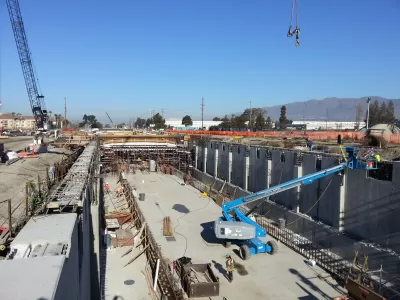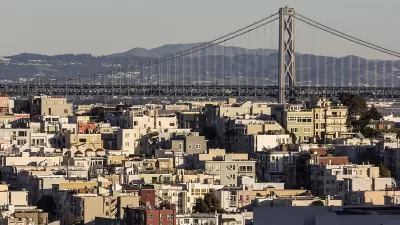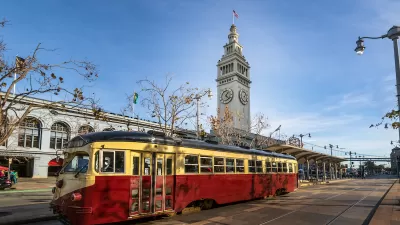The problem of expensive transit investments isn't unique to New York City.

One of the biggest transit and planning related stories in recent memory was an exposé by Brian Rosenthal about the excessive staffing, little competition, generous contracts and archaic rules are responsible for dramatically inflating capital costs for transit in New York.
Andy Bosselman has followed on that example and crunched the numbers of transit system investments in the San Francisco Bay Area, finding more disappointment for taxpayers and transit users.
When the Salesforce Transit Center opens in San Francisco this summer, a new tunnel will be needed to connect it to the current Caltrain terminus in SoMa. The project, known as the Downtown Extension, is estimated to cost $3 billion for each mile of subway, six times more than the average outside the United States.
The Central Subway, a 1.7-mile tunnel that will connect Chinatown to Fourth and Brannan Streets, is a relative bargain at $923 million-per-mile. But elsewhere in the world, new subways cost half as much.
As noted by Bosselman, when transit projects cost more, less gets built. If these prices stay high, the Bay Area will fall well short of the targets set forth by the Metropolitan Transportation Commission's Plan Bay Area 2040, as well as the full potential of a $21 billion funding promise by the nine-county region.
Bosselman relies on the research of Alon Levy, who also sits down for interview with Curbed about why transit investments are so expensive in the Bay Area. Levy's first point: that poor planning means local agencies spend billions on unnecessary infrastructure.
FULL STORY: Bay Area subway and rail costs: Why are they among the highest in the world?

Maui's Vacation Rental Debate Turns Ugly
Verbal attacks, misinformation campaigns and fistfights plague a high-stakes debate to convert thousands of vacation rentals into long-term housing.

Planetizen Federal Action Tracker
A weekly monitor of how Trump’s orders and actions are impacting planners and planning in America.

Chicago’s Ghost Rails
Just beneath the surface of the modern city lie the remnants of its expansive early 20th-century streetcar system.

Bend, Oregon Zoning Reforms Prioritize Small-Scale Housing
The city altered its zoning code to allow multi-family housing and eliminated parking mandates citywide.

Amtrak Cutting Jobs, Funding to High-Speed Rail
The agency plans to cut 10 percent of its workforce and has confirmed it will not fund new high-speed rail projects.

LA Denies Basic Services to Unhoused Residents
The city has repeatedly failed to respond to requests for trash pickup at encampment sites, and eliminated a program that provided mobile showers and toilets.
Urban Design for Planners 1: Software Tools
This six-course series explores essential urban design concepts using open source software and equips planners with the tools they need to participate fully in the urban design process.
Planning for Universal Design
Learn the tools for implementing Universal Design in planning regulations.
planning NEXT
Appalachian Highlands Housing Partners
Mpact (founded as Rail~Volution)
City of Camden Redevelopment Agency
City of Astoria
City of Portland
City of Laramie





























